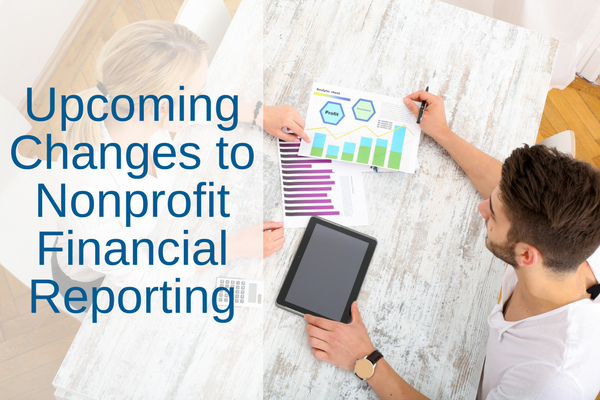Preparing for your annual broker-dealer audit should be a proactive agenda throughout your company’s fiscal year. Early preparation allows your business to stay compliant with the numerous rules and regulations. Failure to implement preemptive measures may result in an interruption of your … Read More
nonprofit independent audit
In the realm of nonprofit financial accountability, undergoing an independent audit is a critical practice that ensures transparency, trust, and adherence to regulatory standards. A nonprofit independent audit is a comprehensive examination of an organization's financial records and internal controls conducted by an external auditor. This process is not just a regulatory requirement; it serves as a powerful tool for nonprofits to showcase their commitment to fiscal responsibility and stewardship of resources.
The primary objective of a nonprofit independent audit is to provide an unbiased and expert assessment of an organization's financial health. External auditors, with their specialized knowledge and independence, meticulously review financial statements, transactions, and internal processes to verify accuracy and compliance. This scrutiny offers stakeholders, including donors, board members, and the public, confidence in the nonprofit's financial integrity.
Beyond compliance, a nonprofit independent audit is an opportunity for organizations to identify areas for improvement in financial management and internal controls. Recommendations provided by auditors contribute to strengthening the overall governance structure and operational efficiency. This proactive approach not only ensures adherence to legal requirements but also enhances the organization's capacity to fulfill its mission effectively.
For donors and supporters, the results of a nonprofit independent audit serve as a testament to the organization's commitment to accountability and ethical practices. It demonstrates that the nonprofit takes seriously its responsibility to manage funds with integrity, thereby building trust and credibility. In a competitive philanthropic landscape, this trust becomes a valuable asset that can attract new supporters and solidify relationships with existing ones.
In conclusion, a nonprofit independent audit is more than a routine financial check; it's a cornerstone of responsible nonprofit management. Beyond meeting regulatory demands, it symbolizes a commitment to transparency, sound financial practices, and the highest standards of accountability. Nonprofits that embrace independent audits not only fulfill legal obligations but also pave the way for sustained trust and impact in the communities they serve.
Deciphering the Many Motivations Behind Charitable Giving
The motivations behind American giving have been as varied as they are opaque. From various financial motivations to individual, social, or community level motivations, understanding what motivates donors and how these vary across demographic groups can help your non-profit more effectively reach … Read More
3 Common Mistakes that Get Non-Profits in Tax Trouble
Mistakes happen - managing a non-profit is too complex for there not to be. Some errors are harder to fix than others, and it’s important to focus on minimizing potential mistakes that would cause your non-profit to lose precious financial resources. This includes accurately managing non-profit … Read More
5 Steps for a Successful Non-Profit Survey
Surveys play a key role in helping non-profits identify member needs to better their programs, outreach, and development programs. However, a non-profit cannot best serve those needs if they do not ascertain the needs of their members through a survey. This result,ending up with useless information, … Read More
Transitioning your Non-Profit from Overhead to Impact
Local and national watchdog groups have played an important role in helping donors identify questionable non-profits for decades. However, the measurement standards have evolved since groups such as GuideStar, Charity Navigator, and the Better Business Bureau’s Wise Giving Alliance began issuing … Read More
Leveraging Accountability to Grow your Non-Profit
Your non-profit’s mission is the core of your organization, and it is imperative that not only does your organization make an impact, but that it does so effectively and that the broader community understands this impact. Accountability allows for the work your non-profit does day in and day out to … Read More
How to Determine the Value of Donated Items for you Non-Profit
It can be difficult for non-profit organizations to value non-cash and in-kind donations. There are several purposes for valuing donations including record-keeping or providing a value for charitable tax deduction. Either way, your non-profit’s tax needs will likely include valuing donations at … Read More
Choosing the Right Insurance for your Non-Profit
Risk management is important for every organization to integrate into their operating strategy. Insurance is the cornerstone of any risk management plan, including your non-profit organization’s financial plan. While insurance cannot protect your organization from every adverse situation, it is … Read More
Is Your Fundraiser Profitable? Best Practices for Measuring Fundraiser ROI
As your nonprofit begins to prepare its taxes, it is also a good time to conduct a fundraising audit. A fundraising audit, will aide in developing a data-driven strategy to help your organization and fundraising efforts expand and grow. Below is a list of what to include in your fundraising audit … Read More
Upcoming Changes to Nonprofit Financial Reporting
In August of 2017, a new set of rules were adopted by the Financial Accounting Standards Board (FASB). The is the first major update to the regulations since 1993, and will become effective on December 31, 2017. The goal is to improve communication between the nonprofits and its investors and … Read More









